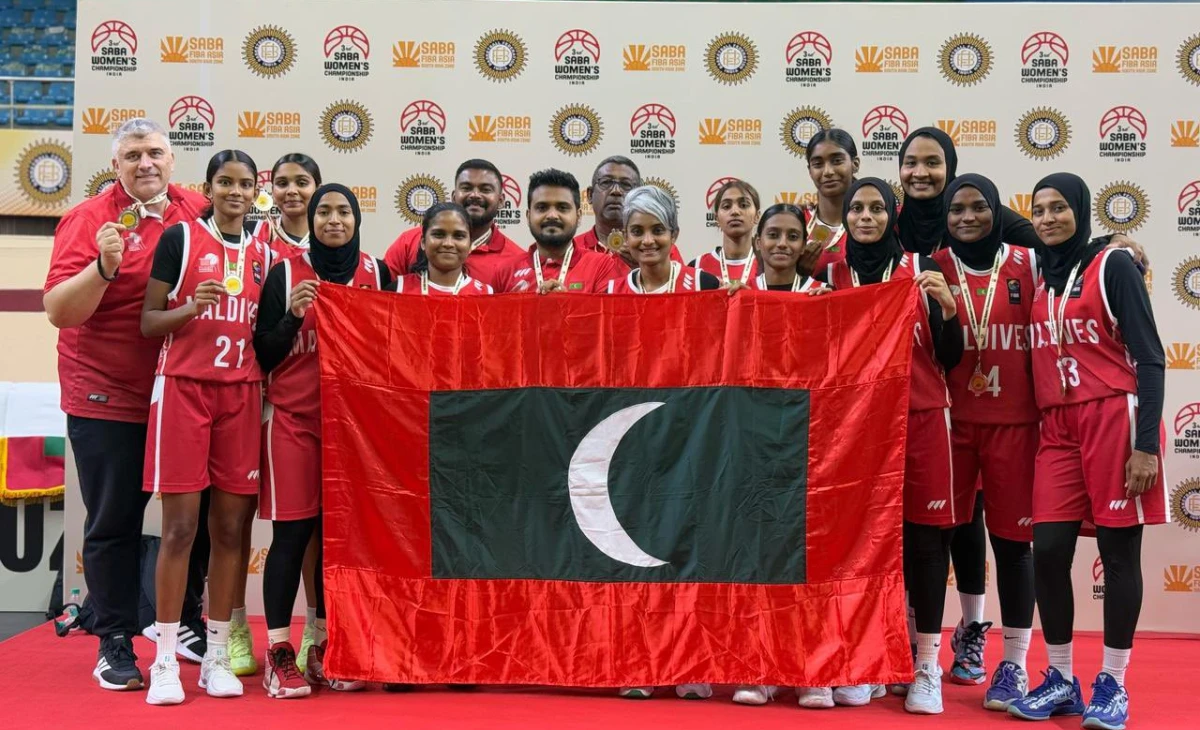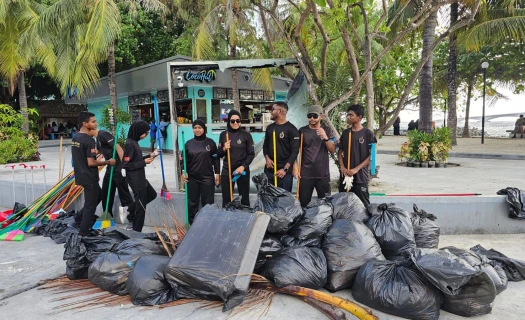Fri, 06 Feb 2026
|DHIVEHI
Breaking the chains: Women rising, leading, and winning
08 Mar 2025
|

National women's basketball team who secured a silver medal at 3rd SABA Women's Basketball tournament --- Photo: President's Office
In the early 1900s, women workers ignited a movement that shattered the glass ceiling and forced the ruling powers to rethink their stance on women's rights. Their relentless efforts to reclaim what had been unjustly restricted led to the first Women's Day being celebrated in America in 1909.
A year later, at a Socialist Conference in Copenhagen, the idea of an international day for women's rights took shape. By 1911, the first official International Women's Day was marked in several European nations, championing women's voting rights, equal pay, and workplace equality. The movement gained momentum worldwide, culminating in the United Nations officially recognising the day in 1975.
As we honour this day, Maldivian history stands as a testament to the unwavering strength, skill, and resilience of its women. From expert homemakers to master craftswomen, Maldivian women have played a vital role in shaping the nation. Stories abound of Maldivian women "who transform fish into money after fishermen bring their catch home" and those “who move elegantly on the reefs, collecting cowries, as dawn breaks on the horizon." These women, who have long been the backbone of their communities, exemplify resilience and ingenuity. Yet, despite their vital contributions, the question remains: do they receive the respect and recognition they rightfully deserve in today's Maldives?
Findings from the Ministry of Social and Family Development last year reveal the persistent barriers women face in political participation. Economic constraints, social norms, religious interpretations, and cultural biases continue to hinder women's engagement in leadership and governance – and this is just one of many fields where the struggle for equality persists.
Beyond politics, Maldivian women still face workplace inequality, weak legal protections, and financial barriers. Pay gaps persist, leadership roles favour men, and workplace harassment remains underreported due to inadequate legal safeguards. Although women dominate sectors such as education and healthcare, their rise to leadership is often hindered by systemic biases and cultural expectations.
Despite these challenges, the Government has taken steps to empower women and bridge these gaps. President Dr Mohamed Muizzu's vision for women's empowerment is carving new pathways for progress. To drive financial independence, the Government introduced a dedicated 100-million-rufiyaa loan scheme exclusively for women within its first 100 days – an investment in a future where women lead with confidence and independence.
To further empower Women’s Development Committees (WDCs), the Government revised the Decentralisation Act (14th Amendment) to establish clearer roles, bolster support systems, and improve access to resources through local councils. The Amendment also set defined guidelines for Government grant allocations and introduced a MVR 3,000 Ramadan allowance for eligible committee members, reinforcing the recognition and value of women's leadership in local governance.
Maldives also takes pride in the fact that women lead in crucial sectors such as education and healthcare, forming the backbone of a thriving society. In 2023, the Education Ministry disclosed that 75 per cent of teachers working in the Maldives are women, with 78 per cent of them being Maldivian. These figures show major opportunities for development in the education sector, especially for women. In the health sector, women constitute a significant portion of the workforce, particularly in public health and primary care – but not without challenges that prevent career advancement.
Meanwhile, in sports, women continue to break barriers. In February 2025, the national women’s basketball team secured a historic silver medal at the 3rd SABA Women’s Basketball Tournament. In May 2024, Dheema Ali became the first Maldivian to qualify for the Olympics through competition by winning the singles event at the South Asian Qualification Tournament. In September 2023, sisters Fathimath Nabaha and Aminath Nabeeha Abdul Razzaq made history at the Botswana International Series as the first Maldivians to face off in a BWF-recognised final, with Nabaha emerging victorious. Nihaya Ahmed, a dominant force in chess, has won every national competition she has entered and earned multiple international accolades, including the 'Athlete of the Year – Chess in Women's Category (Gold)' award from 2022 to 2024. These achievements reflect the extraordinary potential of Maldivian women in sports, proving their ability to inspire and lead.
Today's Maldivian women reject the outdated notion that "this is not women's work." Across the islands, they have taken to the seas as fisherwomen, entered the diving industry in growing numbers, and pursued careers as data scientists, engineers, pilots and bus drivers. In every sphere where they were once told they "could not succeed," Maldivian women continue to redefine possibilities and set groundbreaking examples.
While we celebrate how far we have come, we must also recognise that the journey towards true gender equality is not over. The road ahead demands relentless commitment, bold action, and an unwavering belief in the limitless potential of women. Together, we move forward – unstoppable and unshaken.








